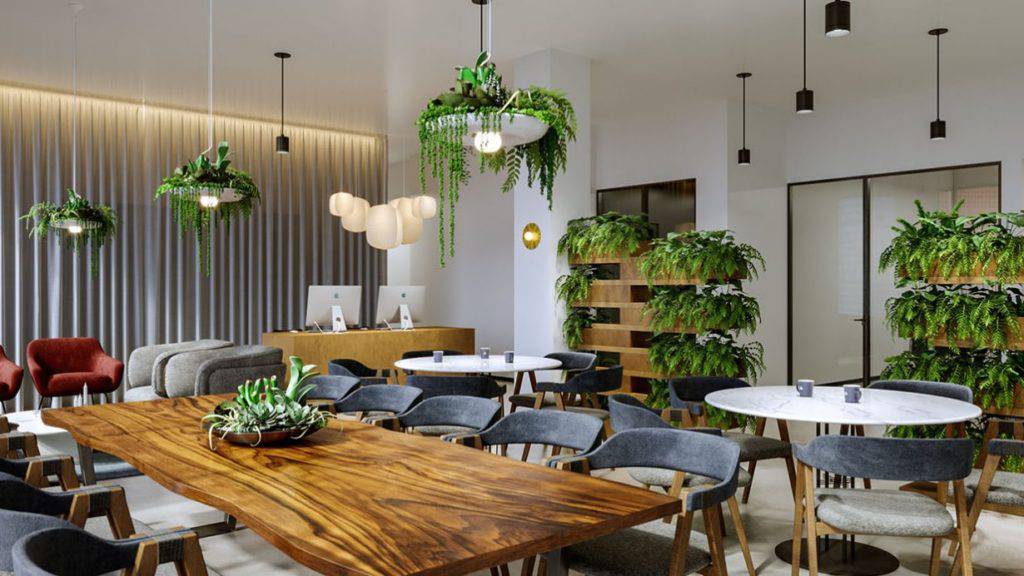As WeWork Stumbles, These 11 Co-Working Companies Could See New Opportunity
WeWork’s failed attempt to go public led to a slashed valuation and a diminished ability to invest in rapid growth. Co-working rivals may spy an opportunity.Once one of the world’s fastest-growing and most highly-valued startups, WeWork is gaining a new reputation.
The company saw its valuation spiral after scrutiny surrounding its now-withdrawn IPO revealed that it had lost an astounding $1.9B in 2018. Further, it was revealed that its co-founder and former CEO Adam Neumann had engaged in questionable practices while leading the company.
Valued at $47B at the beginning of the year, WeWork recently sold a majority stake to its top investor, SoftBank, in a rescue deal that valued it at about $8B — a decline of $39B in just over 9 months.
A revamped WeWork may see its fortunes rebound, but it remains to be seen what its recent troubles will mean for the co-working space company at large.
Though some competitors may be hesitant to go public after WeWork’s experience, many will likely see an opportunity to boost their own prospects in WeWork’s wake.
Using CB Insights data, we identified 11 co-working companies that may be looking to gain from WeWork’s fall from grace.
For more on WeWork, check out our deep dive report for a breakdown of how WeWork makes money.
....MUCH MORE
1. IWG
IWG is a Switzerland-based multinational corporation that is something like the tortoise to WeWork’s hare.
Founded in 1989 as Regus and taken public in 2000, IWG once found itself in a similar situation as its co-working rival. The company expanded aggressively during the ’90s economic boom by renting flexible workspaces to dot-com startups, only to collapse when the market went bust. After its US subsidiary declared bankruptcy in 2003, the company learned from its mistakes and charted a path of slow and steady growth.
Today, it operates several brands that provide short-term office space to companies. Regus, one of IWG’s brands, offers office space across the world, while Spaces, another IWG brand, provides work environments geared towards establishing a communal feel. While WeWork and IWG have about the same number of workstations, IWG posted an operating profit of $61M in 2018. Its $4.7B market cap, while substantial, is still significantly below WeWork’s $8B post-downturn valuation.
IWG CEO Mark Dixon told The New York Times that his company’s relative stability can be attributed to its cautious growth strategy and several key differences between its business model and WeWork’s.
For one thing, IWG has diversified its business by earning 28% of its revenues from services like office staff and tech support, compared to just 5% at WeWork. IWG also enters into partnerships with landlords rather than subleasing space, an arrangement that can reduce IWG’s risk. It has sought to further reduce its exposure by entering into franchise agreements that do not require the company to hold onto expensive long-term leases in case of an economic downturn. For example, Japan-based TKP bought IWG’s co-working spaces in Japan earlier this year and will operate the co-working company’s brands in the country.
As Dixon told The New York Times, “From the time you make an investment, you plan for the worst thing that can happen … You name it, we’ve seen it.”
2. Knotel
Flexible workspace provider Knotel recently became a unicorn when it raised $400M in August.
The company is also expanding quickly. Since its 2016 founding, Knotel says that it has accumulated 5M square feet of office space. It operates in 15 cities across 3 continents, with plans to eventually double the number of cities it does business in. While its losses are not as dramatic as WeWork’s, it did post an EBITDA loss of $24M between January and July of 2018.
The company’s leadership maintains that it is well-positioned for long-term profitability. Knotel puts less emphasis on lifestyle perks like beer and coffee than some rivals, an approach that it says allows it to furnish spaces at a lower cost than companies like WeWork. The firm also hopes to boost stability by targeting large, well-established corporations like Starbucks and Microsoft — customers that may have a lower turnover churn than startups.
Finally, Knotel aims to set itself apart by concentrating its capacity in major economic hubs like New York, London, and Tokyo. Its CEO, Amol Sarva, told Business Insider in September, “There’s really only 30 [cities] that matter … Our scope within cities and across cities is one big advantage against some of the other businesses that say they do what we do.”
3. Industrious
Industrious is a co-working startup that has raised more than $220M since its 2013 founding, most recently closing an $80M round in August.
It has been gradually pivoting from a subleasing model to a landlord partnership model similar to the one employed by IWG. Rather than leasing space and then renting it out to companies, Industrious has been functioning as a management company for its landlord partners.
Under this model, the landlord covers most of the cost of renovating a building floor into a co-working space, complete with cafes and quiet spaces. Industrious receives a management fee of 5-7% of the office’s revenues, alongside a 30-50% cut of the additional rent the landlord is able to charge after the conversion. The company says that while this setup generates less revenue, its profit margins are about 90% — compared to the 30% margins it makes on sublease agreements.
As of today, Industrious has 90 locations in more than 45 US cities, with plans to launch another 60 locations next year. It also announced a partnership earlier this year with fitness company Equinox to open workspaces at some of its gyms.
Instead of focusing solely on large economic hubs, Industrious is making a bet on medium-sized cities with emerging tech industries, such as Phoenix, Dallas, and Atlanta. In August, co-founder and CEO Jamie Hodari stated that Industrious would be profitable in “a few months.”
“We have to be able to serve our customers where their teams are,” Hodari said in a 2018 interview. “This is a better way to work for an enormous number of people … I think the distinction between tech hub and non tech hub is starting to evaporate.”....


